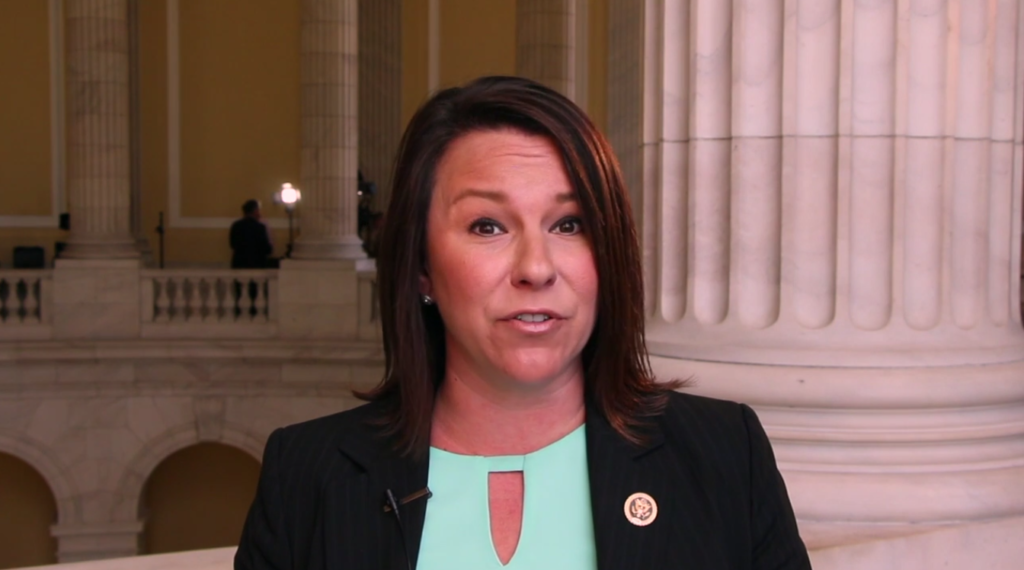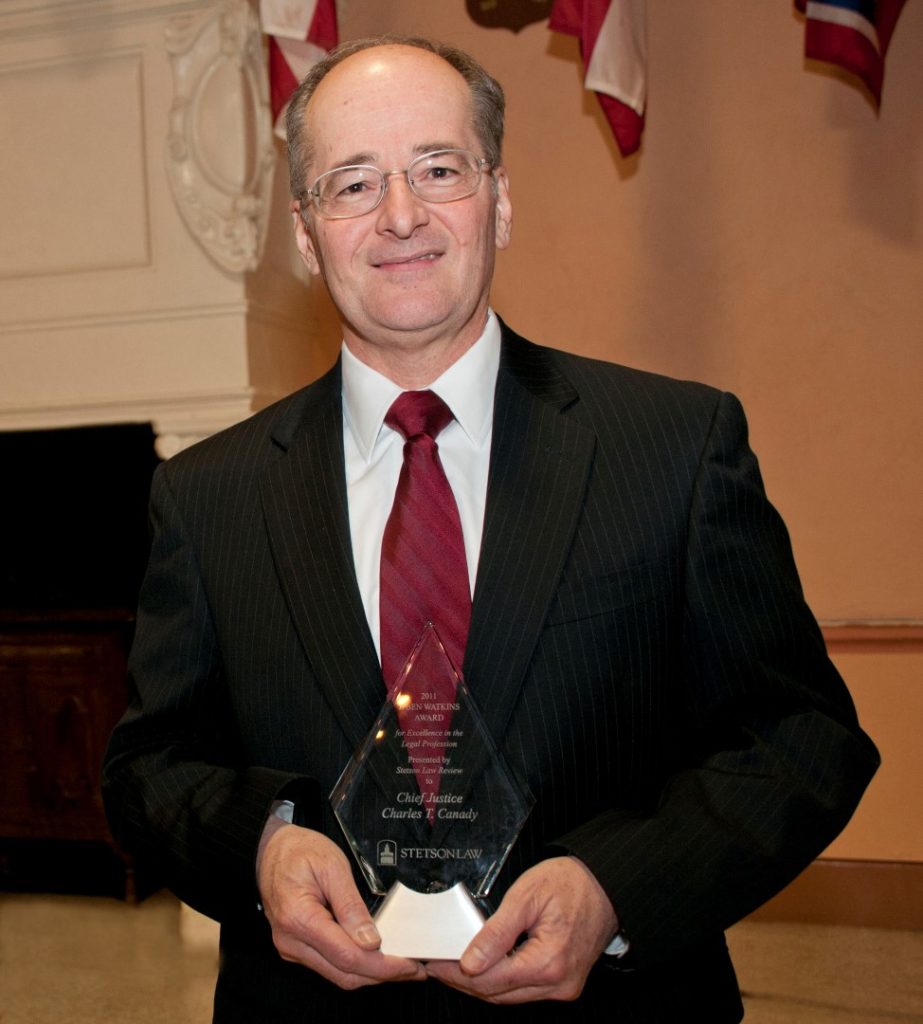Some of Donald Trump’s most insulting comments about women

The footage of Donald Trump released Friday in which he brags about aggressively groping women and trying to seduce a woman who is not his wife is the latest example of lewd and sexist comments made about women by the billionaire businessman and former reality TV star. The comments threaten the viability of the Republican nominee’s campaign for president. Here is a look at some of the other past comments Trump has made about women. ___ “When you’re a star, they let you do it. You can do anything.” He adds seconds later: “Grab them by the p—-. You can do anything.” — Trump in a previously unreleased recording made by “Access Hollywood” in 2005, published Friday by The Washington Post and NBC News. ___ “If Hillary Clinton can’t satisfy her husband what makes her think she can satisfy America #MakeAmericaGreatAgain.” — Trump tweeted in April 2015. He later deleted the post. ___ “It must be a pretty picture, you dropping to your knees.” — Trump to a female contestant in 2013 on an episode of “Celebrity Apprentice.” ___ “Did Crooked Hillary help disgusting (check out sex tape and past) Alicia M become a U.S. citizen so she could use her in the debate?” — Trump tweeted in September 2016. He was referring to former Miss Universe winner Alicia Machado, whom he publicly shamed for gaining weight when he owned the contest. ___ “It’s certainly not groundbreaking news that the early victories by the women on ‘The Apprentice’ were, to a very large extent, dependent on their sex appeal.” — Trump wrote in his 2004 book, “How To Get Rich.” ___ “All of the women on ‘The Apprentice’ flirted with me — consciously or unconsciously. That’s to be expected. A sexual dynamic is always present between people, unless you are asexual.” — Trump, also from “How To Get Rich.” ___ “You could see there was blood coming out of her eyes. Blood coming out of her wherever.” — Trump in an interview with CNN in August 2015, referring to Fox News Channel anchor Megyn Kelly. ___ “Look at that face! Would anyone vote for that? Can you imagine that, the face of our next president? I mean, she’s a woman, and I’m not s’posedta say bad things, but really, folks, come on. Are we serious?” — Trump in a September 2015 interview with Rolling Stone, speaking about then-primary rival Carly Fiorina. ___ “It doesn’t really matter what (the media) write as long as you’ve got a young and beautiful piece of ass.” — Trump in an interview with Esquire Magazine in 1991. ___ “A person who’s flat-chested is very hard to be a 10, OK?” — Trump in an interview with shock jock Howard Stern in September 2005. ___ “I saw a woman who was totally beautiful. She was angry that so many men were calling her. ‘How dare they call me! It’s terrible! They’re all looking at my breasts.’ So she had a major breast reduction. The good news: Nobody calls her anymore — nobody even looks — and not only that, it was a terrible job.” — Trump to Stern in 2008. Republished with permission of the Associated Press.
Alabama Republicans pull support for Donald Trump

Friday’s bombshell release by the Washington Post of Donald Trump’s hot mic recording in which he brags about groping women without their consent to Access Hollywood host Billy Bush, has created a fallout of Republican support across the country. As of Saturday morning politicians who once supported the Republican presidential nominee are quickly reversing their opinions and condemning his candidacy, including some members of the Alabama delegation. Here’s what the delegation is saying about Trump’s remarks: Alabama 1st District U.S. Rep. Bradley Byrne – withdraws support: Donald Trump’s comments regarding women were disgraceful and appalling. There are absolutely no circumstances under which it would ever be appropriate to speak of women in such a way. It is now clear Donald Trump is not fit to be President of the United States and cannot defeat Hillary Clinton. I believe he should step aside and allow Governor Pence to lead the Republican ticket. Alabama 2nd District U.S. Rep. Martha Roby – withdraws support: Donald Trump’s behavior makes him unacceptable as a candidate for president, and I won’t vote for him. As disappointed as I’ve been with his antics throughout this campaign, I thought supporting the nominee was the best thing for our country and our party. Now, it is abundantly clear that the best thing for our country and our party is for Trump to step aside and allow a responsible, respectable Republican to lead the ticket. Hillary Clinton must not be president, but, with Trump leading the ticket, she will be. Alabama 3rd District U.S. Rep. Mike Rogers: Has not responded to request for comment at this time. Alabama 4th District U.S. Rep. Robert Aderholt: Has not responded to request for comment at this time. Alabama 5th District U.S. Rep. Mo Brooks: Has not responded to request for comment at this time. Alabama 6th District U.S. Rep. Gary Palmer – condemns Trump: As a husband and father of two daughters, I was dismayed and angered by the comments made by Mr. Trump in 2005. Even though he made those statements over a decade ago, they are extremely offensive and not representative of my values or the values of the American people. He was right to apologize, but without showing true contrition and asking for forgiveness the apology is not sufficient. Mr. Trump should seek forgiveness and give deep and serious consideration to what he should do in regard to what is best for our country. This article will be updated as additional comments come in.
Martha Roby officially withdraws Trump endorsement: ‘I won’t vote for him’

Alabama Congresswoman Martha Roby (R-AL02) announced via Twitter Saturday morning that she will not be voting for Republican nominee Donald Trump one month from today in light of the derogatory comments he made about women which were revealed Friday. Donald Trump’s behavior makes him unacceptable as a candidate for president, and I won’t vote for him. Full statement: pic.twitter.com/Ge7GU1TSvm — Rep. Martha Roby (@RepMarthaRoby) October 8, 2016 The denouncement comes after a tumultuous day for Republicans, whose presidential nominee was revealed to have bragged in 2005 about the unsolicited sexual advances he made on women, saying “And when you’re a star, they let you do it.” Thus far Roby is the only Republican member of the Alabama delegation to officially withdraw her support of Trump, though Congressman Mo Brooks (R-AL05) never endorsed him to begin with. Several prominent Republicans have also announced they are no longer supporting the nominee, including House Committee on Oversight and Government Reform Chairman Jason Chaffetz (R-UT03), while House Speaker Paul Ryan canceled an event with him last minute Friday evening. Others, like Roby, are calling from Trump to end his bid and allow himself to be replaced by another Republican, presumably his Vice Presidential nominee Indiana Governor Mike Pence. But with exactly a month to go before the election, it is unlikely all 50 states would have time to reprint all the ballots, should such drastic measures be taken.
Martin Dyckman: Donald Trump pick Charles Canady could bring ‘dog whistles’ to SCOTUS

What sort of Supreme Court justices would Donald Trump appoint? For an insight, consider the case of Kathy Johnson v. Omega Insurance Co., decided by the Florida Supreme Court Sept. 29. One of his prospective nominees was on the wrong side of that. The business model of an insurance company is to take as much of the policyholder’s money as possible and pay back as little as the law allows. To use a currently familiar phrase, its “fiduciary responsibility” is to the stockholders, not the policyholders. It sometimes takes an expensive court case like Johnson’s to put the relationship in a better balance. That’s what the Florida Supreme Court did when it ruled, 6-1, that an insurance company had to pay the legal fees and costs she racked up in proving that a sinkhole was responsible for the major damage to her home in Marion County. It ultimately cost $213,465 to repair. Omega Insurance denied her claim on the basis of an engineering firm’s finding that the damage owed to something other than a sinkhole. Johnson hired lawyers to file suit. They hired another engineering consultant, who opined that yes, it was a sinkhole, and that Omega’s report was badly done. When a third consultant confirmed the sinkhole verdict, Omega gave up and agreed to pay for the damages, but not for Johnson’s yet-to-be-decided attorney fees or some $100,000 in court courts. The trial judge ruled Omega should pay those too. The 5th District Court of Appeal disagreed. At Tallahassee, the Supreme Court chastised the 5th District for not paying attention to what it had already said in such cases. “We have consistently explained that the purpose of this statute is to provide an adequate means to afford a level process and make an already financially burdened insured whole again, and to also discourage insurance companies from withholding benefits on valid claims,” wrote Justice C. Fred Lewis. The need is “deeply rooted in public policy,” he explained. Indeed it is. Otherwise, insurance companies would have a compelling incentive to deny claims on the basis of “evidence” that hapless policyholders couldn’t afford to contest. Omega argued that it should be on the hook for Johnson’s fees and costs only if it had deliberately acted in what lawyers call “bad faith.” Not so, countered Lewis. “It is the incorrect denial of benefits, not the presence of some sinister concept of ‘wrongfulness,’ that generates the basic entitlement to the fees if such denial is incorrect,” Lewis wrote, quoting from an earlier decision. The national significance in this is that the solitary dissent was by Justice Charles Canady, the Florida Court’s most conservative member. He is among 21 people Trump has said he would consider for the nation’s highest court. Canady’s dissent — which Lewis wrote extensively to rebut — turned on technicalities. He argued that the court didn’t have jurisdiction to hear Johnson’s appeal. The merits of her case didn’t matter. Justice Ricky Polston is the court’s other frequent conservative dissenter, but even he broke with Canady this time, concurring only in the majority’s result but not in its reasoning. He didn’t say why. Both of them dissented in April when the majority agreed to stay Florida’s latest anti-abortion law, a 24-hour waiting period, while the court decides whether to hear an appeal on the merits. Although many of the court’s decisions are unanimous, dissents by Canady and Polston are common on questions of access to the court by individuals doing battle with corporations. The stock conservatism of either justice would appeal to the U.S. Chamber of Commerce and other business lobbies that appear to have the Trump campaign’s attention. They dissented also when the court overturned the Republican Legislature’s congressional redistricting as a violation of Florida’s constitutional “fair districts” amendments. Canady’s name, in particular, is a dog whistle to the anti-abortion lobby. As a member of Congress, he claimed credit for crafting the emotionally laden phrase “partial birth abortion.” He was one of the managers the House appointed to prosecute its unsuccessful impeachment case against President Bill Clinton. On the infrequent occasions when the court overturns a murder conviction or reduces a sentence from death to life, Canady and Polston usually dissent. In one case, however, they voted as the condemned man wished: to let him die. The liberal justices ordered a new trial. It would be difficult to find a more sanguinary opinion than the dissent they filed in March 2014, when the majority upheld the Jacksonville murder conviction of Michael Yacob but reduced his death sentence to life in prison. Florida’s law requires the court to review every death sentence for “proportionality” — in other words, does the condemned person deserve execution as much as others? Writing the dissent, Canady agreed that “the death sentence in this case is not proportionate.” But he argued that Florida’s Constitution bars the court from considering proportionality because the U.S. Supreme Court doesn’t require it. That point of view could become the majority’s following the mandatory retirement of the court’s four most liberal members by January 2019. Gov. Rick Scott‘s hand-picked nominating commission will select all the finalists. The Canady dissent shocked Chief Justice Jorge Labarga into writing an extensive rebuttal. ” … Unless an edict is handed down by the (U.S.) Supreme Court declaring that comparative proportionality review is inconsistent with proper capital sentencing review, I will continue to make a proportionality review in every case in which I am called upon to place my judicial imprimatur on a sentence of death. It is my fervent hope that this Court will also continue to do so as a body,” he wrote. With Canady and other like-minded Trump appointees on the U.S. Supreme Court, his hands could be tied. ___ Martin Dyckman is a retired associate editor of the newspaper now known as the Tampa Bay Times. He lives in suburban Asheville, North Carolina.


